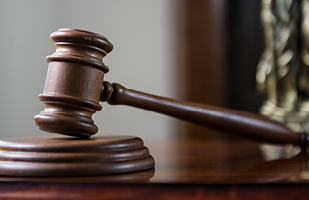Practice and Procedure Rule Proposals Filed With General Assembly

The Supreme Court has submitted rule changes for court practices and procedures with the General Assembly.

The Supreme Court has submitted rule changes for court practices and procedures with the General Assembly.
A series of proposed changes to the practices and procedures rules for Ohio courts have been filed with the General Assembly for final consideration. If approved, the rules go into effect on July 1.
Most amendments were submitted by the Supreme Court of Ohio Commission on the Rules of Practice & Procedure following two rounds of public comment. The commission conducts an annual review of all rules governing practice and procedure in Ohio courts.
The proposed changes include:
- Revised rules for the use of technology in the courts.
- Updates to rules for civil cases.
- Clarification about expert witness qualifications.
- Suggested modifications to juvenile court rules.
- Repeal of Crim.R. 46 regarding bail.
Technology-Related Rules
The proposed technology-related amendments provide new definitions relating to physical and remote appearances to ensure uniform use by courts for civil, criminal, and juvenile cases.
Additional changes specify that courts generally retain the authority to order a person to physically appear at a proceeding regardless of any option to appear remotely. The amendments also clarify the jurisdiction of remote testimony when used during a trial or hearing. The witness testifying remotely must declare on the record that they submit to the Ohio court’s jurisdiction.
A recommended change to rules for civil cases would expressly allow courts to conduct remote bench trials upon a party’s request, and in certain circumstances over another party’s objection.
An amendment to Rule 12 of the Rules of Criminal Procedure and Rule 8 of the Rules of Juvenile Procedure would require local courts to establish a method to accept filings electronically in criminal and juvenile matters. This change mirrors a rule for civil cases that was approved in the last rules cycle and took effect last July. A Crim.R. 15 revision would give criminal defendants the option to appear remotely for depositions.
Rules for Civil Cases
Additional changes proposed to the Rules of Civil Procedure would:
- Establish statewide minimum standards for process servers – people trained to find a defendant and ensure they are given notice of legal action against them – and guidelines for standing orders appointing those servers.
- Change the permissible service method for interrogatories – formal written questions in cases answered in writing under oath – and requests for admissions. It also allows courts to reduce the number of interrogatories.
- Allow courts to adopt a local rule exempting parties in certain case types from a requirement to meet and discuss discovery issues before scheduling a conference with the court.
- Exclude certain domestic relations and civil protection order cases from a rule about the second dismissal of a case. Typically, when a plaintiff dismisses a case for a second time, the dismissal ends the case and prevents a later re-filing of the action.
Qualifications for Expert Witnesses
A recommended change to the Evidence Rules would clarify a requirement for expert testimony in medical liability cases. To qualify as an expert witness, the rule currently states that individuals must devote one half of their professional time to active clinical practice in their field or to its instruction at an accredited school. The revised rule makes clear when the time in active clinical practice is determined. It is not at the time of trial, but when the negligent act allegedly occurred or the claim was made.
Rules for Juvenile Courts
A proposed change to Juv.R. 34 would align the rule with recently passed legislation regarding the timing of dispositional hearings in juvenile cases.
Bail Rule Changes
In November 2022 voters approved an amendment to the Ohio Constitution regarding bail. Based on that amendment, the Court approved a repeal of Crim.R. 46.
The Ohio Constitution mandates submission of amendments to court practice and procedure rules to the General Assembly by Jan. 15 each year. The Supreme Court has until April 30 to make revisions and file the amendments. The amendments take effect July 1 pending legislative approval.


